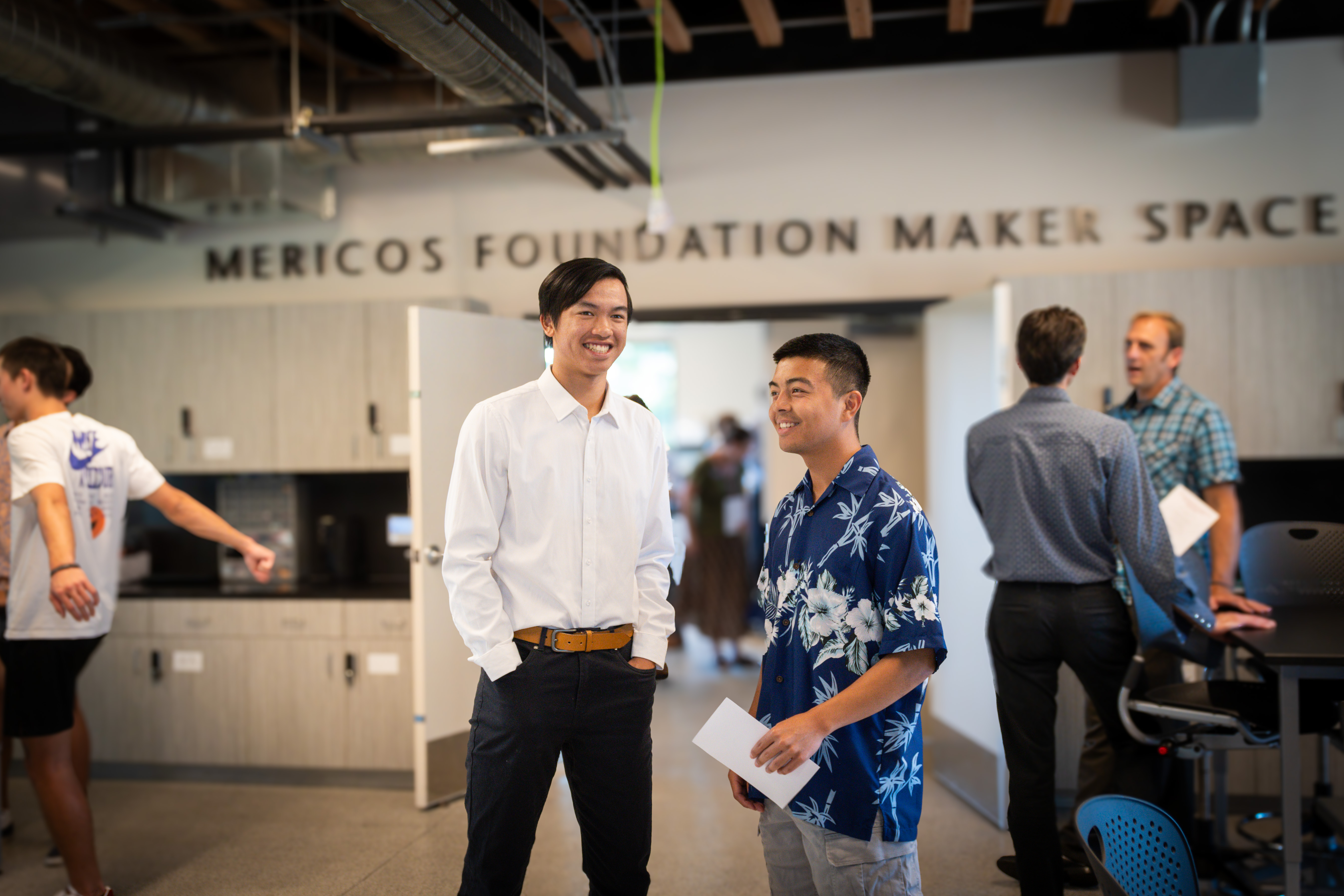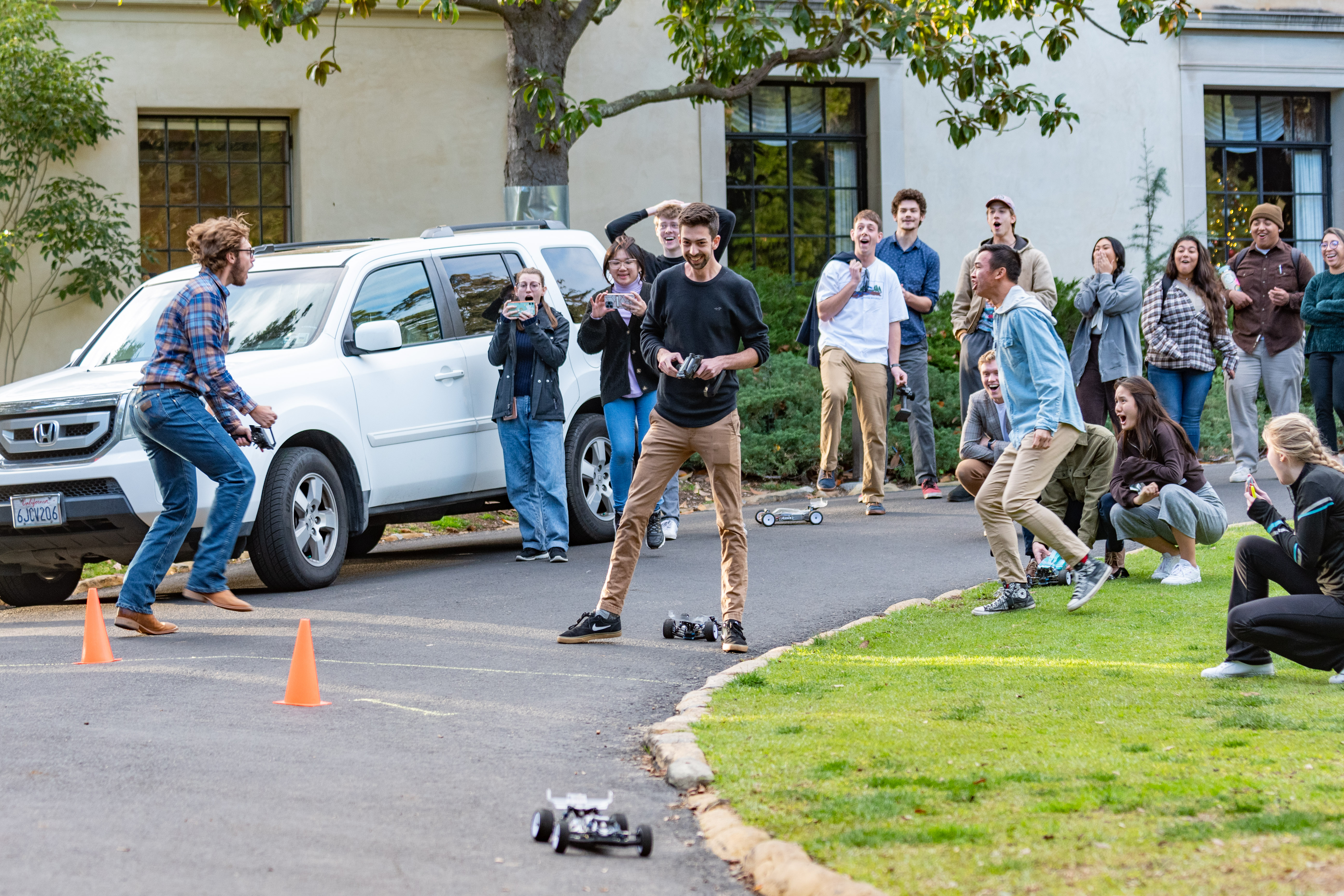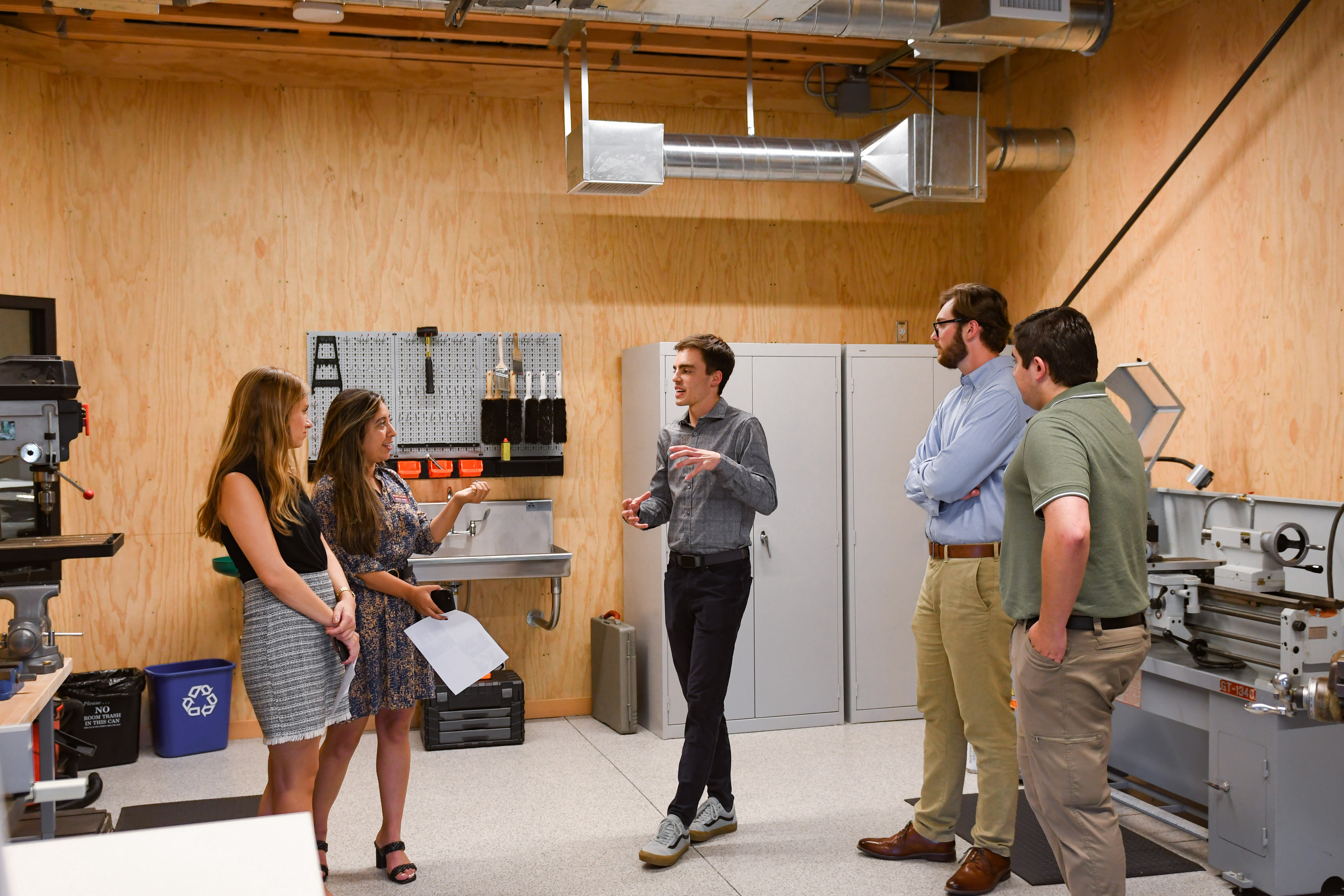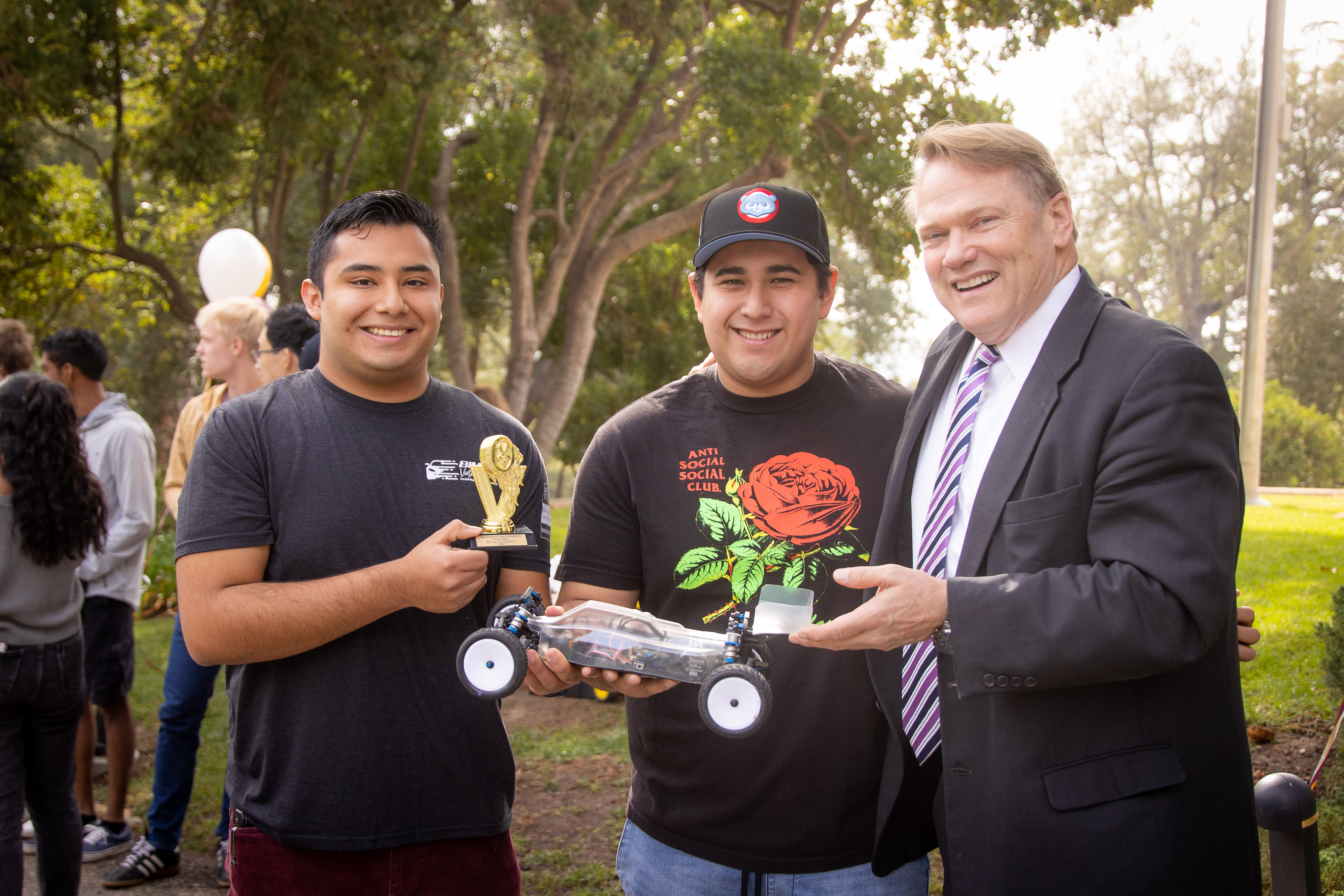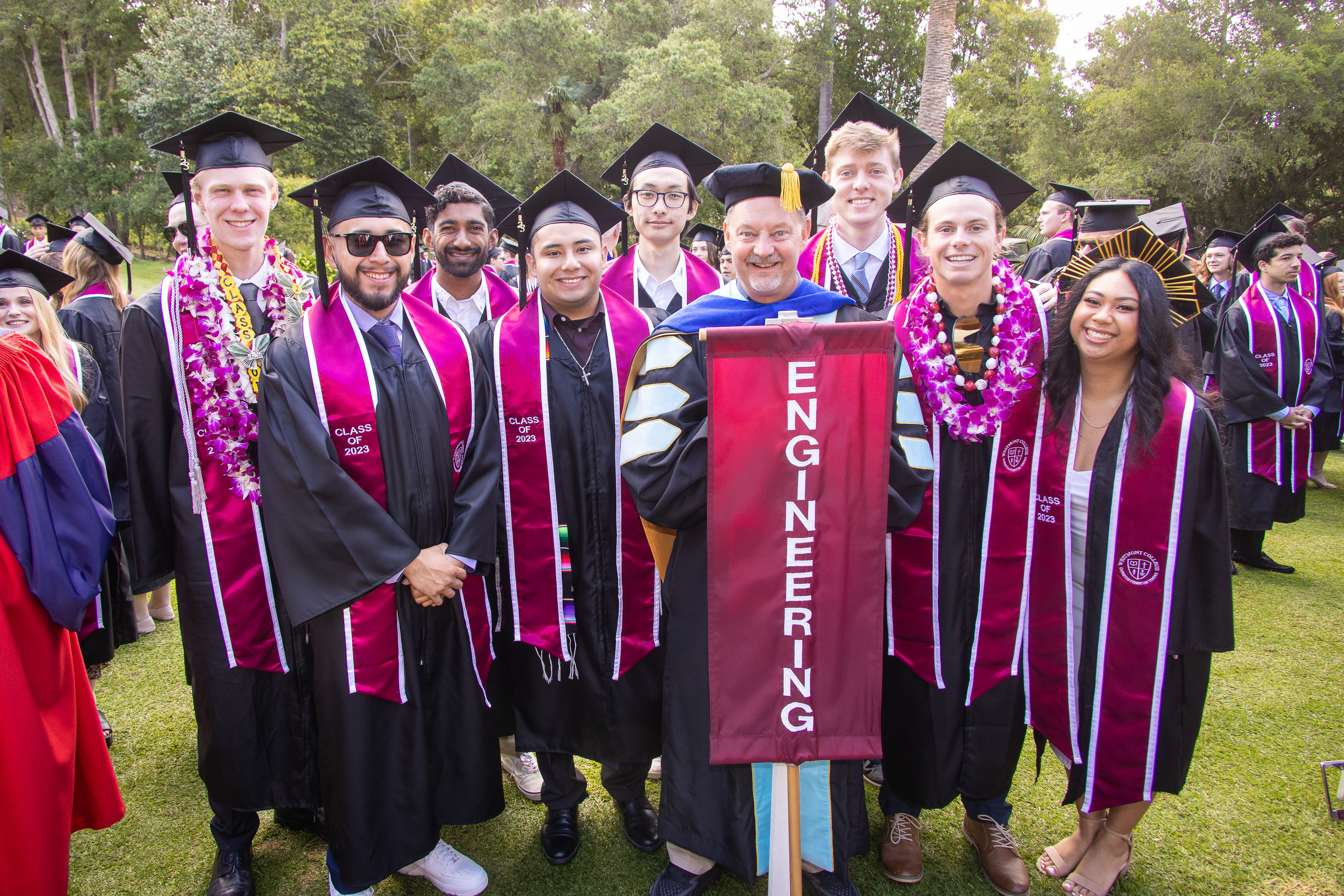Gain technical skills and deep understanding to address crucial engineering challenges.
Deeply grounded in the liberal arts, our engineering program blends courses in engineering, physics, mathematics and chemistry. We equip graduates to find innovative solutions to enduring problems by cultivating collaboration, problem-solving and moral discernment. Increasingly, solutions to local and global challenges require insights from engineers, especially when addressing social mobility, caring for the environment, reducing poverty and promoting human welfare. Our graduates benefit from thorough technical and scientific training and the interdisciplinary sensitivity and moral imagination of the Christian liberal arts. We’ve embraced the National Science Foundation’s challenge to prepare adaptive engineers committed to blending science, engineering and the arts.
Benefits of an Engineering Degree
An engineering degree opens a myriad of opportunities! Engineers, complex problem solvers and critical thinkers, possess the top two skills listed in the Future of Jobs Report from the World Economic Forum. Westmont also teaches the third top skill (creativity) by infusing design and innovation experiences in engineering courses.
Engineers are qualified to work in a broad range of industries, such as design, energy, sustainability, environmental resources, robotics, automation, vehicle design, aeronautics, space, manufacturing and internet of things (IoT). Large companies and small startups constantly hire engineers. One estimate projects more than 25,000 U.S. engineering job openings in the next decade, with opportunities overseas as well. At present, indeed.com features 1,400 entry-level jobs for engineers. Starting salaries average more than $70,000.
Most importantly, engineers can help people lead better lives through the products, processes and services they design in keeping with Christ’s command to “love others as ourselves” (Matthew 22:39). Christian engineers have a tremendous privilege and responsibility to love people well and serve them diligently!
The Difficulty and Enjoyment of an Engineering Program
Engineering coursework is difficult.
About 50% of students who begin an engineering degree at other schools don’t complete it. This is not true at Westmont as our small classes and committed faculty create an environment where students can succeed. However, they must work hard... Incoming first-year engineering students often take calculus or pre-calculus in high school. Most score well on the math section of the SAT or ACT. Some have also taken physics, chemistry or other science classes. Many earn AP credits.
While engineering is difficult, it is also lots of fun!
Engineers work on interesting projects that help people. Westmont focuses on designing to help people to align with our Christian passion to love people. Engineering almost always depends on teamwork, and students make lifelong friends as they design and create together! Students learn by doing as they create prototypes their ideas. Learning while creating makes technical engineering content come to life.
Requirements
48 units of General Education Liberal Arts, 30 units of Core Science/Mathematics and 56 units of Engineering and Technical content.
Sample Schedule
Fall | total units 17
- Engineering & the Liberal Arts EN 005 & 005L | 3
- General Physics I (Common Inquiries #2) PHY 021 | 4
- General Physics I Lab (W.I.) PHY 022 | 1
- Calculus I-MA 009 (Common Inquiries # 4; also QAR) | 4
- G.E. (Intro to New Testament) RS 010 | 4
- P.E. (Fit for Life) PEA 032 | 1
Spring | total units 17
- Statics & Engineering Software EN 050 | 3
- General Physics II PHY 023 | 4
- General Physics II Lab PHY 024 | 1
- Calculus II MA 010 | 4
- G.E. (Intro to Old Testament) RS 001 | 4
- P.E. | 1
Fall | total units 19
- General Chemistry + Lab CHM 005 | 4
- Multivariable Calculus MA 019 | 4
- G.E. (Christian Doctrine) RS 020 | 4
- G.E. (Writing for the Liberal Arts) | 4
- Mechanics of Materials EN 040 | 3
Spring | total units 17
- Dynamics EN 055 | 4
- Circuits & Electronics EN 142 | 4
- Electronics Lab EN 143 | 1
- Linear Algebra & Differential Equ. MA 040 | 4
- G.E. (World History) HIS 010 | 4
Mayterm | Total Units 6
- Materials Engineering EN 030 | 3
- Manufacturing Processes EN 150 | 3
Fall | total units 15
- Thermodynamics EN 120 | 4
- Machine Design EN 160 | 3
- Instrumentation & Measurement EN 140 | 4
- Technical Elective #1 | 3
- G.E. (Philosophical Perspectives) PHI 060 | 4
Spring | total units 15
- Fluid Mechanics EN 110 | 3
- Junior Design: interdisciplinary (Service-Learning) EN 080 | 3
- G.E. (Common Inquiries #1 & #5) | 4
- G.E. (Common Inquiries #8) | 4
- P.E. | 1
- Optional: Engineering internship EN 190 | 0-3
Fall | total units 16
- G.E. (Foreign Language) | 4
- Control Systems EN 100 | 3
- G.E. (Common Inquiries #3) | 4
- Senior Design Capstone I EN 180 | 3
Spring | Total units 12
- Senior Design Capstone II EN 181 | 3
- Technical Elective #2 | 3
- G.E. (Common Inquiries #6 & #7) | 4
- P.E. | 1
- Engineering Seminar: Faith, Technology, and Christian Responsibility EN 196 | 1
- Preparation for FE exam | 0
Program Educational Objectives
Three to five years after graduating, Westmont engineering students have:
- Made significant progress in their chosen profession and/or pursuit of an advanced degree.
- Gained increasing leadership responsibility and engaged in service, advancing their employment goals and/or the betterment of their communities, culture and society.
- Experienced increasing effectiveness in teamwork by establishing and demonstrating respect for diverse teams.
- Applied principles of innovation, engineering expertise and/or technical knowledge to challenging issues in their chosen field, addressing societal and cultural challenges while continuing to learn.
- Demonstrated steadfastness in their commitment to uphold high ethical standards of trustworthiness, honor and humility.
- Demonstrated growth in their faith, becoming lifelong disciples of Jesus who serve the world through compassion, kindness, humility, gentleness and patience (Colossians 3:12).
Student Outcomes
Our students gain the ability to:
- Identify, formulate and solve complex engineering problems by applying principles of engineering, science and mathematics.
- Apply engineering design to produce solutions that meet specified needs while considering public health, safety and welfare, as well as global, cultural, social, environmental and economic factors.
- Communicate effectively with a range of audiences.
- Recognize ethical and professional responsibilities in engineering situations and make informed judgments that consider the impact of engineering solutions in global, economic, environmental and societal contexts.
- Function effectively on a team whose members together provide leadership, create a collaborative and inclusive environment, establish goals, plan tasks and meet objectives.
- Develop and conduct appropriate experimentation, analyze and interpret data, and use engineering judgment to draw conclusions.
- Acquire and apply new knowledge as needed, using appropriate learning strategies.
Enrollment & Graduation Data
Currently 59 students major in engineering. Westmont proudly graduated its first engineering majors in May 2023 with a graduation rate of 89% of those who declared an engineering major in their sophomore year.
